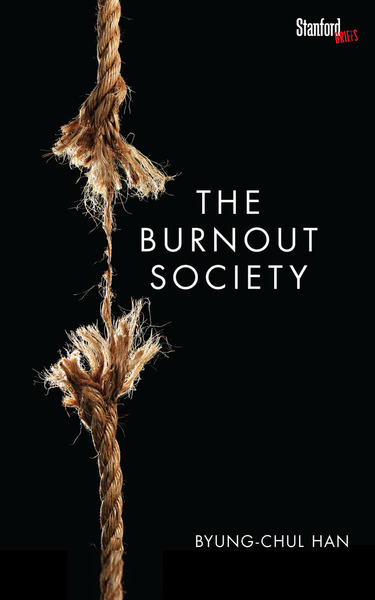I wanted to kick off this blog post by sharing a little personal journey I embarked on during my summer holidays. You see, recently I've had a deep fascination with philosophy, especially the profound insights that Asian philosophy offers. So, this summer, instead of hitting the typical beach reads, I dived headfirst into a few thought-provoking books and even enrolled in an intriguing online course.
And let me tell you, it was nothing short of mind-blowing! These philosophical adventures turned out to be not only thought-provoking but also immensely motivational and, dare I say it, life-changing. One particular book, "The Burnout Society" by Byung-Chul Han, left such an impact that I just had to share my reflections with you. So, buckle up, because we're about to delve into a world of ideas that might just transform the way you see the world too. Here's my review, I hope you'll find it interesting and enjoy reading it.
In an era characterized by ceaseless connectivity, rapid technological advancements, and the relentless pursuit of productivity, Byung-Chul Han's groundbreaking essay, "The Burnout Society," emerges as a poignant exploration of the contemporary individual's struggle to cope with the demands of late-modern society. Han's work delves deep into the core of our hyperactive, performance-driven culture, shedding light on the distressing consequences of living in a world that celebrates positivity and convenience at the cost of genuine human experience.
The Contemporary Struggle
Byung-Chul Han's analysis of the modern individual's plight resonates profoundly in today's world. Our lives have become increasingly digitized, with multitasking and the relentless pursuit of efficiency becoming the norm. But, as Han argues, this constant striving for productivity has given rise to a host of psychological and emotional disorders.
Consider the prevalence of depression, attention deficit disorders, and borderline personality disorders in contemporary society. These are not merely individual issues; they are symptomatic of a broader societal problem. Our incessant drive for positivity and convenience has made it difficult for us to navigate negative experiences. We've grown accustomed to instant gratification and have little tolerance for discomfort or adversity.
The Erosion of Negativity
One of Han's central ideas is the erosion of negativity in our lives. In our pursuit of happiness and success, we've become averse to negative emotions and experiences. The constant exposure to curated, idealized lives on social media reinforces this obsession with positivity. We are expected to be happy, successful, and content at all times.
Think about how social media platforms encourage us to share our highlights, but rarely our struggles. The pressure to maintain a façade of perpetual positivity can be mentally exhausting. We've lost the capacity to embrace negativity as an essential part of the human experience.
 |
| Byung-Chul Han is a South Korean-born philosopher and cultural theorist living in Germany. He was a professor at the Berlin University of the Arts and still occasionally gives courses there |
Hyperactivity and Multitasking
Han also scrutinizes our obsession with hyperactivity and multitasking. In today's world, we are constantly juggling multiple tasks, responding to notifications, and striving to be "efficient." This frenzied lifestyle not only affects our mental health but also erodes our ability to engage in deep, meaningful reflection.
Consider the smartphone, a ubiquitous presence in our lives. While it offers convenience and connectivity, it also fosters a culture of distraction. We're rarely fully present in the moment, always on edge, waiting for the next notification. This perpetual state of hyperactivity has consequences for our well-being, contributing to stress, anxiety, and burnout.
The Loss of Sacred Time
Han's exploration of the concept of time is particularly thought-provoking. He contrasts the profane time of hyperproduction with the sacred time of celebration and play. In our modern, hyperactive society, moments of celebration and genuine playfulness are rare. We're so consumed by our relentless pursuit of productivity that we often forget the importance of taking time to savor life's simple joys.
Incorporating Han's insights into our present-day lives, we can reflect on the urgency of reevaluating our priorities. Are we sacrificing our well-being for the sake of productivity and efficiency? Are we overlooking the value of negativity and the lessons it can teach us? How can we reintroduce sacred moments of celebration and play into our lives to counterbalance the constant demands of hyperproduction?
A path towards a more balanced, fulfilling existence
Byung-Chul Han's "The Burnout Society" provides a profound examination of the strains of modern life in a world driven by performance, positivity, and hyperactivity. It serves as a wake-up call, urging us to reconsider our values and priorities. In an age where constant connectivity threatens to consume us, Han's insights offer a path towards a more balanced, fulfilling existence where we can embrace negativity, celebrate life's simple joys, and rediscover the sacred in our everyday experiences.

No comments:
Post a Comment